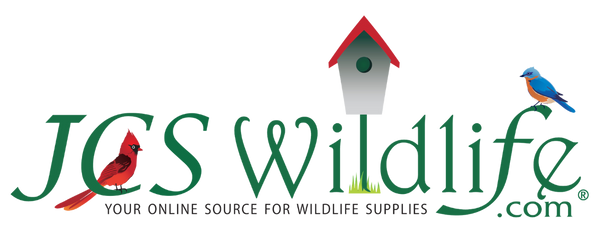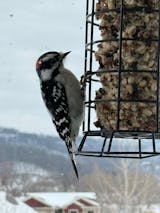As the temperature climbs higher, our yards tend to fill with the sounds of birds. Yet summer feeding is often a challenge for even the most experienced birders. Here are some tricks of the trade, along with a few facts and myths:
Tip: Start early. Even common summer birds, such as Hummingbirds and Orioles, sometimes require time to assimilate to a new feeder. One of the biggest complaints we face in the summer months are when birders set up a new feeder or new food and the birds just stop visiting. This is a common issue, but it does not mean that there is anything wrong with the feeder or the food. It simply means that it is new and unfamiliar, and that there are plenty of other places to get a meal.
The fix? Keep the new feeder partially filled (or partially fill your feeder with the new food, if that is the problem) to avoid a lot of waste until the birds come back. You may even try removing all other feeders from your yard and placing the shunned feeder in the most popular spot. Most importantly, remember that your birds will return on their time.
Myth: If you feed birds, they won’t migrate. This is an especially popular myth in regards to Hummingbirds. The truth is, in the case of the Hummingbirds, you are helping them migrate by keeping your feeder filled until you stop seeing visitors. Studies have proven that Hummingbirds start to migrate as they feel a change in the length of day. Temperature and food sources have much less, if any, bearing on their migration patterns.
That being said, many experts do recommend to cut back a little on feeding seed- and insect-eating birds during warmer months to encourage their natural foraging habits.
Tip: Keep feeders in the shade. It is no secret that Hummingbird feeders can attract some… unwanted visitors. One of the easiest fixes for the summer birding blues is to move your feeder to the shade. Nectar will warm up more slowly in the shade and suet will stay firmer if it is kept cooler.
Tip: Clean your feeders regularly. The general rule of thumb is to clean nectar feeders every 2-3 days during the summer, and everyday on very hot days. The same goes for fruit or jelly feeders. Seed feeders should be checked regularly for signs of moisture or clumping, as these are signs of mold. Dr. David Bonter from Cornell University recommends filling seed feeders half-full and refilling more often to prevent seed from sitting too long in warmer months.
Fact: Your feeders look appetizing to more than just the birds, especially as a nighttime snack. Common culprits are bats drinking your Hummingbird nectar, raccoons and deer going after seed and suet, and bears just basically wreaking havoc in your bird sanctuary. The best thing to do to combat this is to bring feeders in at night.
Read more about summer feeding here.


